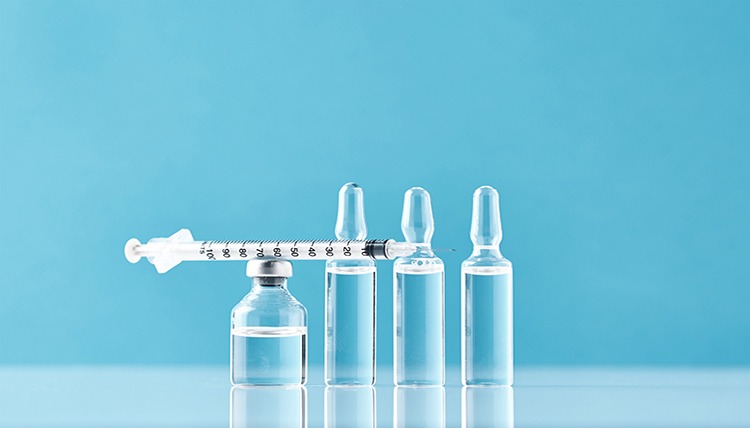Tracking Parenteral Drugs in New Drug Approvals
The number of parenteral drugs in the industry’s pipeline and recently approved new drugs continues to rise with the increase of biologics and more complex active pharmaceutical ingredients. DCAT Value Chain Insights examines recent FDA approvals for parenteral drugs.
Parenteral drugs: examining recent drug approvals
Parenteral drugs, which may be a small molecule or a biologic, refer to drugs using non-oral means of administration by injecting the drug directly into the body typically through three common routes of administration: intramuscular, subcutaneous and intravenous. The percentage of parenteral drugs approved as new molecular entities (NMEs) by the US Food and Drug Administration’s (FDA) Center for Drug Evaluation and Research (CDER) has increased over the last several years.
Between 2015 and 2019, parenteral drugs have accounted for approximately 40% to 50% of NME approvals. Of the 48 NMEs approved by the FDA in 2019, 20 were parenteral drugs, which represented 42% of NME approvals (see Table I). In 2018, 23 of the 59 NME approvals were parenteral drugs, which represented 39% of NME approvals, and in 2017, 19 of the 46 NME approvals were parenteral drugs, or 41%. These levels were compatible with recent approvals in 2016 and 2015. Of the 22 NMEs approved in 2016, 13 or 59% were parenteral drugs (also includes diagnostic agents approved as NMEs). In 2015, 20 or 44% of the total 45 NME approvals were parenteral drugs (see Table I).
| Table I. Number of Parenteral Drugs in Relation to Total New Molecular Entity (NME) Approvals, 2015 to 2019 | |||
| Year span | Number of New Molecular Entities (NMEs) Approved | Number of parenteral drugs approved as new molecular entities | Percentage of parenteral drugs approved as new molecular entities |
| 2019 | 48 NMEs approved | 20 NME parenteral drugs approved | 42% |
| 2018 | 59 NMEs approved | 23 NME parenteral drugs approved | 39% |
| 2017 | 46 NMEs approved | 19 NME parenteral drugs approved | 41% |
| 2016 | 22 NMEs approved | 13 NME parenteral drugs approved | 59% |
| 2015 | 45 NMEs approved | 20 NME parenteral drugs approved | 44% |
|
Note: Of the 22 new molecular entity approvals in 2016, 20 were for drugs (small molecules and biologics) and two NMEs were for radioactive diagnostic imaging agents. |
|||
Parenteral drug approvals: 2019
Of the 20 parenteral drugs approved as NMEs in 2019, 11 or 55% were from the large pharmaceutical companies. Novartis had two NME parenteral drug approvals: Adakveo (crizanlizumab-tmca) for treating complications of sickle cell disease and Beovu (brolucizumab-dbll) for treating wet age-related macular degeneration.
Several large pharmaceutical companies had one parenteral drug NME approval in 2019. AbbVie received approval of Skyrizi (risankizumab-rzaa) for treating moderate-to-severe plaque psoriasis in adults who are candidates for systemic therapy or phototherapy. Bristol-Myers Squibb through its $74-billion acquisition of Celgene received approval of Reblozyl (luspatercept-aamt) for treating anemia in adult patients with beta thalassemia who require red blood cell transfusions. Daiichi Sankyo received approval of Enhertu (fam-trastuzumab deruxtecan-nxki) for treating metastatic breast cancer. Roche gained FDA okay for Polivy (polatuzumab vedotin-piiq) for treating relapsed or refractory diffuse large B-cell lymphoma.
Other large pharmaceutical companies receiving parenteral NME approvals include: Amgen for Evenity (romosozumab-aqqg) for treating osteoporosis; Astellas/Seattle Genetics for Padcev (enfortumab vedotin-ejfv) for treating refractory bladder cancer; Merck & Co. for Recarbrio (imipenem, cilastatin and relebactam) for treating complicated urinary tract and complicated intra-abdominal infections; Sanofi for Cablivi (caplacizumab-yhdp) for treating acquired thrombotic thrombocytopenic purpura; and Shionogi for Fetroja (cefiderocol sulfate tosylate) for urinary tract infections.







